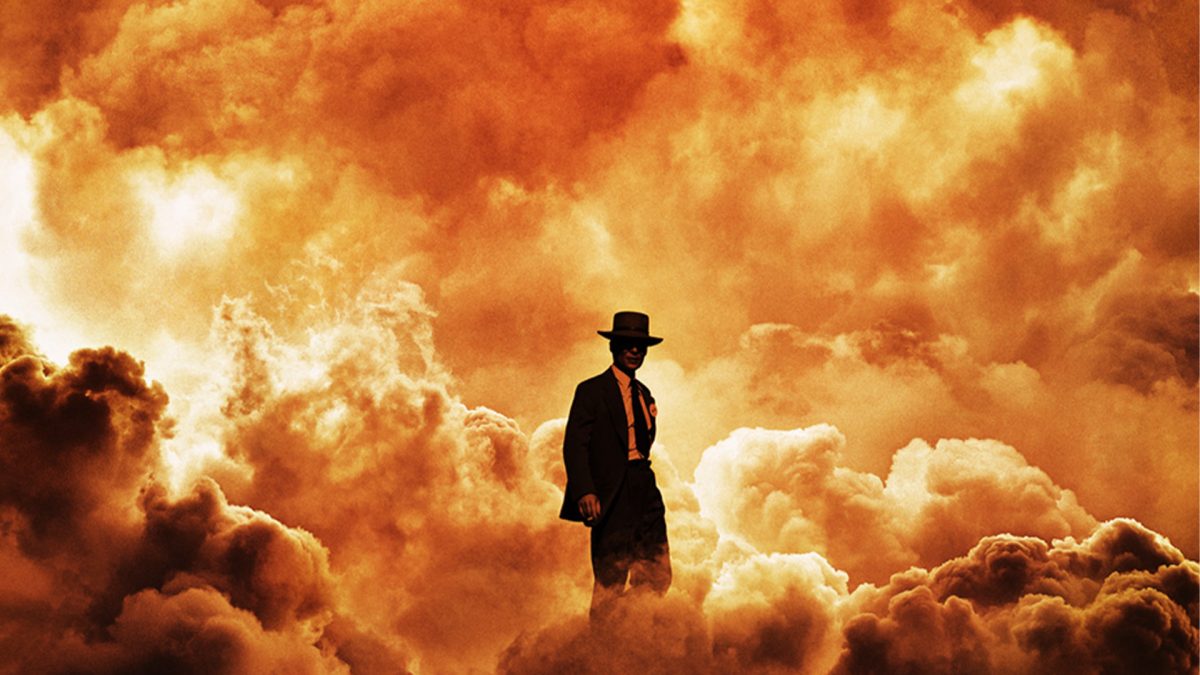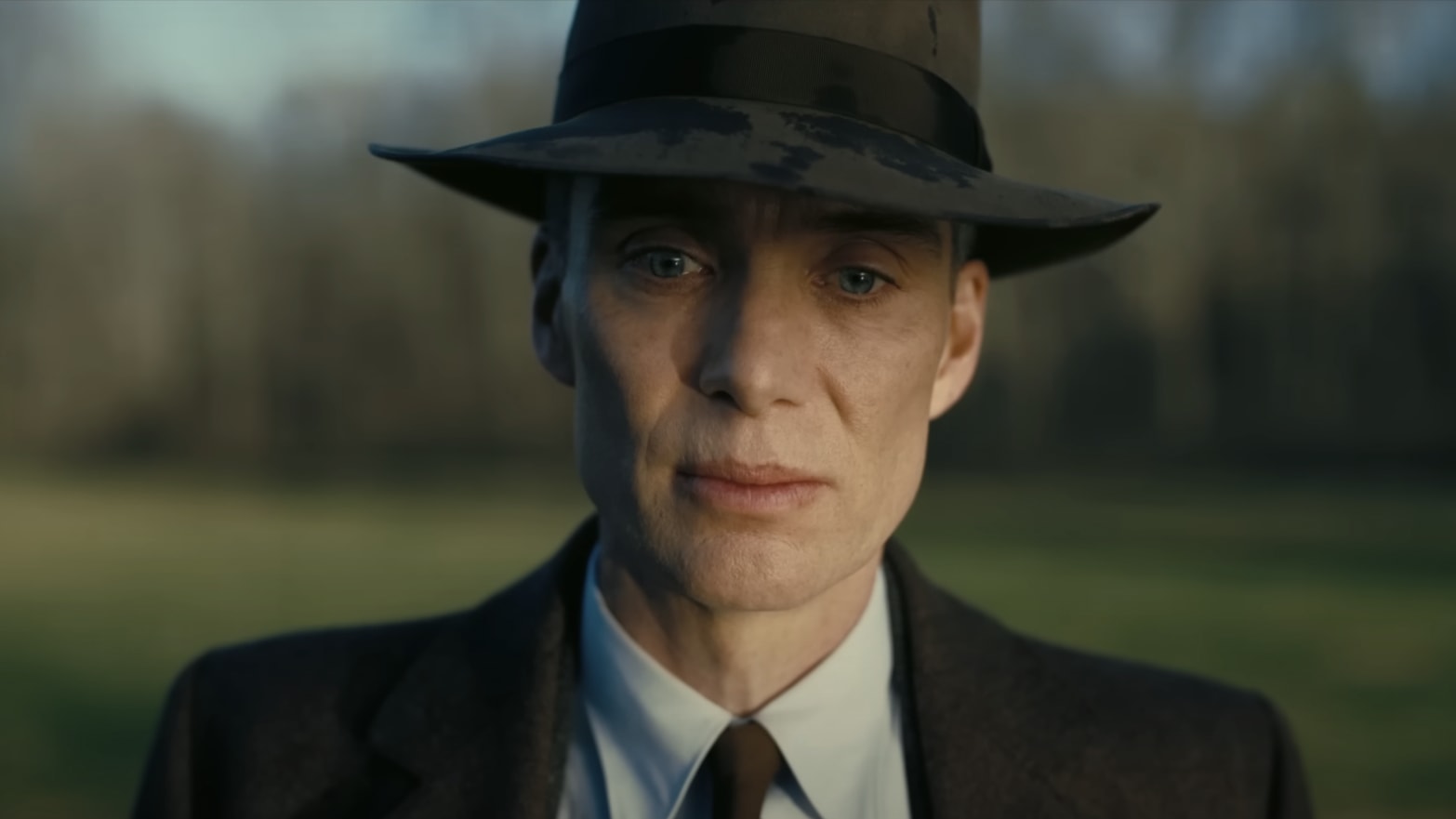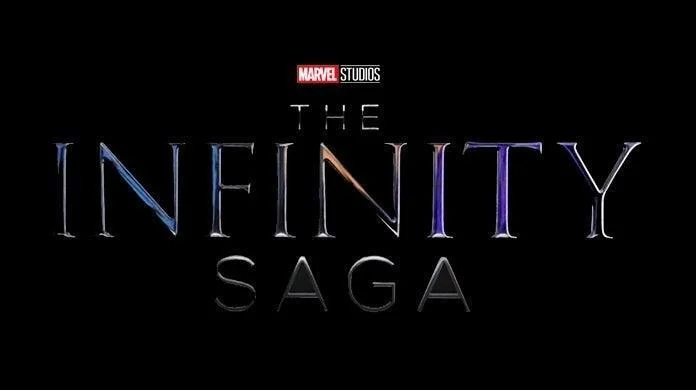“Oppenheimer” is a biographical thriller film written and directed by Christopher Nolan (“The Dark Knight trilogy”, “Inception”, “Interstellar”, “Dunkirk”). Based on Kai Bird and Martin J. Sherwin’s book “American Prometheus”. It subverts the typical biopic model to offer a superbly complex exploration of a man throughout all of his amazing triumphs and basic flaws, starring Cillian Murphy in the lead role, as well as Matt Damon, Robert Downey Jr, Emily Blunt, and Florence Pugh.
During the height of WWII, theoretical physicist J. Robert Oppenheimer (Cillian Murphy) was recruited by the US government to supervise the “Manhattan Project,” a top-secret project aimed at developing the world’s first nuclear weapons. After seeing the project’s director, Major General Leslie Groves (Matt Damon), Oppenheimer and the General agree that the vast desert of Los Alamos, New Mexico, is the finest site to carry out such an operation. As more scientists and their families are brought into this secret facility, Oppenheimer works around the clock to construct this weapon of mass devastation before the Nazis can. With the War raging and personal problems piling up, Oppenheimer continues to push himself to the breaking point but soon pays the repercussions of his commitment.
The atomic bomb “Little Boy” was dropped on the Japanese city of Hiroshima on August 6, 1945, marking the first time a nuclear weapon was deployed in a conflict. The dropping of this bomb and “Fat Man” on Nagasaki three days later effectively ended World War II, ushering in a terrifying new period known as the “Atomic Age.” To this day, many people debate whether the ethical repercussions of these attacks are justified by what happened afterward.
J. Robert Oppenheimer, whose major involvement in the creation of these weapons led to him being hailed as “the father of the atomic bomb,” a moniker he carried as a heavy burden for the rest of his life, bears the brunt of the guilt. We are exposed to a carefully organized and singularly devastating exploration of this complicated man’s legacy and how it still impacts everyone several decades later in Christopher Nolan’s movie “Oppenheimer.”
In classic Christopher Nolan style, the tale is conveyed as a fragmented, non-sequential succession of highlights from the titular subject’s life, rather than as a conventional biopic. When we first meet J. Robert Oppenheimer, we perceive him as an extremely clever man whose dedication to his trade gets him the admiration of many of his contemporaries, even as a young student. However, almost soon after, the film cuts to him on trial for supposed communist affiliations, an accusation that threatens to wreck his otherwise favorable image. As the judicial committee grills him with tough questions, Oppenheimer is troubled by his own mistakes, which are shown to the viewer through flashbacks to important moments in his life. These scenarios span from his strained connection with his wife to his regret for putting his confidence in the wrong people. This provides the audience with a first-person picture of what Oppenheimer’s mind must have been processing during this critical era in his life, as he considers the very real threat of having all of his hard work undone by these strong government officials. It’s difficult to see any other director attempting to transmit so much information to their viewers in such a way, but Nolan always manages to work his magic in the best way possible, hitting the right balance of portraying the victorious ascent and sad fall of a flawed man.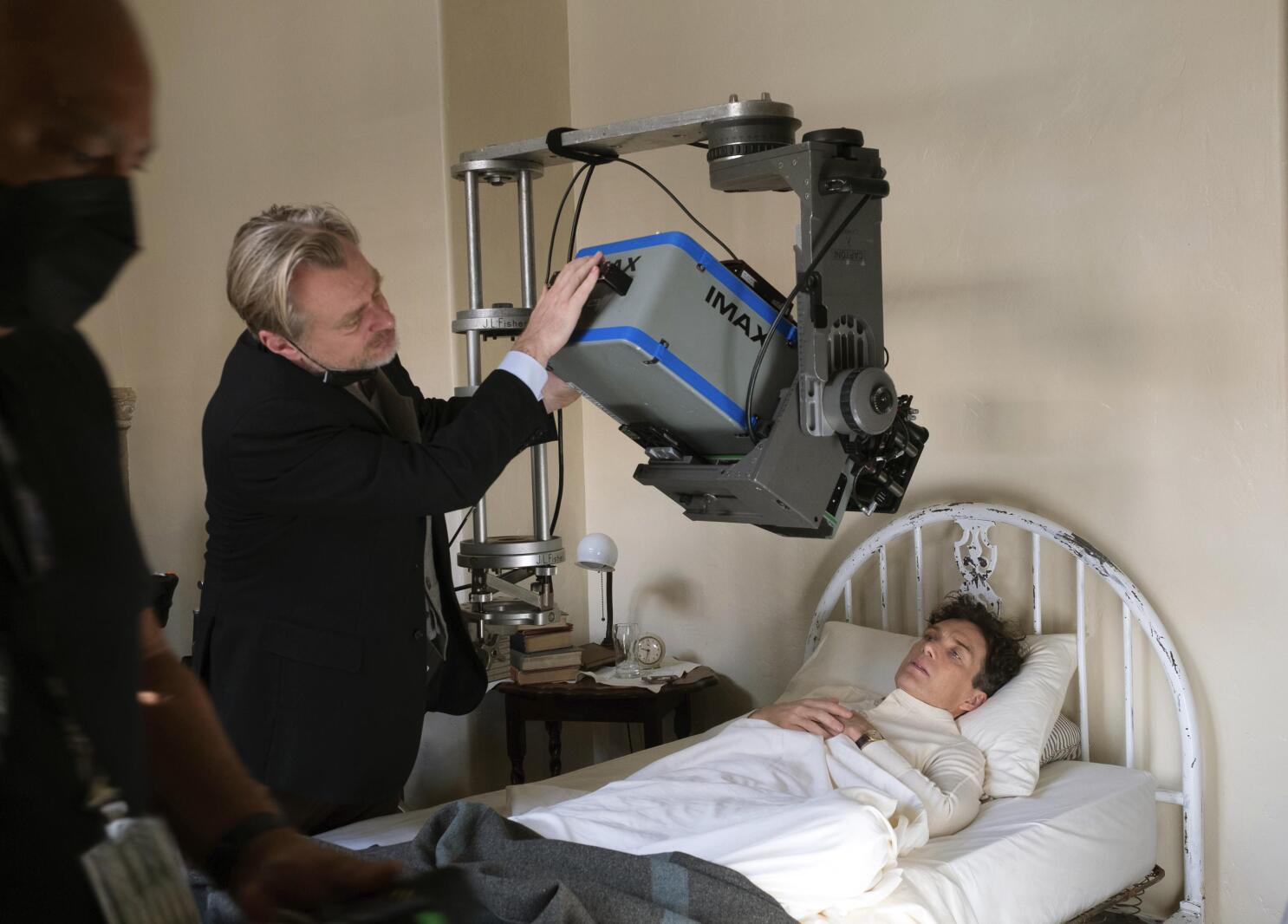
Another significant aspect of Nolan’s direction is his inventiveness in handling some key situations. One scene in particular, which I won’t go into too much detail about, truly had me on the edge of my seat as we watched Oppenheimer and the other scientists test the prototype bombs, with each explosion proving to be greater than the previous. Because Nolan has been clear about his aversion to utilizing CGI in his films, he instead chooses more practical techniques for depicting the escalating strength of these bombs. By reminding the spectator that the Nazis may be developing their weapon of mass devastation, there is a tremendous feeling of urgency running throughout these sequences, giving the scientists even more motivation to work even faster to defeat the enemy at their own game. Each bomb explosion may be compared to a ticking clock, with each blast indicating progress toward the ultimate weapon’s perfection. The inventive use of editing in these sequences keeps things going quickly, which is especially important given the film’s three-hour duration. Nolan previously used a similar tactic in 2017’s “Dunkirk,” which cleverly used the film’s soundtrack to emphasize to the viewer how time is actually of the essence. Once again, Nolan has avoided the easy approach of exploiting CG effects to convey a tale, instead keeping spectators on their toes with plain old-fashioned directorial competence.
Cillian Murphy gives what can only be characterized as the performance of his career in the part of J. Robert Oppenheimer, a man so complicated that I can’t image the amount of pressure there was to represent him this successfully. The combined efforts of Murphy’s acting and Nolan’s direction contribute to Oppenheimer’s status as one of the twentieth century’s most interesting figures. This is not a man to be taken at face value; there are so many faces to his character that it requires an in-depth investigation that only a film like this can provide. The film portrays Oppenheimer as neither a hero nor a villain, but rather as a complex man whose human characteristics overshadow what he will be known for in history books. Murphy approaches him in the manner of a Shakespearean character, complete with defects, haughtiness, and a feeling of arrogance that seals his fate. One scenario may make you admire his exceptional abilities in nuclear physics, while another may make you despise him for his betrayal of his family. He can be seen as both a martyr and a scapegoat for his role in bringing the bloodiest global battle in history to a conclusion while ushering in something much worse.
The rest of the ensemble performed an excellent job as well, with Matt Damon, Robert Downey Jr., Emily Blunt, and Florence Pugh standing out. Damon’s portrayal of Major General Leslie Groves is more than just a generic military character; he is a significant person who seizes the chance to exploit Oppenheimer’s skills. We observe as Groves creates an unexpected partnership with the scientist, frequently challenging the theoretical implications of experimenting with nuclear power. Groves’ obliviousness to Oppenheimer’s vast scientific knowledge allows the spectator to learn alongside him when it is conveyed in basic detail. To that end, he offers a crucial third-party perspective on Oppenheimer’s accomplishments.
It’s also amazing to watch Robert Downey Jr. shine as Lewis Strauss, which is not just his finest post-MCU performance, but one of his best parts overall. Strauss is remembered negatively by history for his involvement in uncovering Oppenheimer’s communist links. He has such a resentment toward Oppenheimer that he is essentially the genuine villain of this narrative. Downey seizes every chance to demonstrate Strauss’s duplicity, waiting for the appropriate moment to dethrone Oppenheimer and harm his image. According to reports, Downey considers this his finest part to date, and he certainly appears to be giving it his all.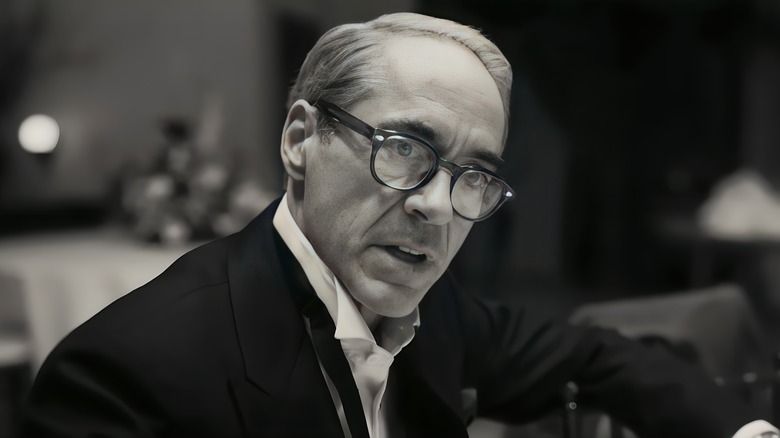
Emily Blunt and Florence Pugh also made substantial contributions as Kitty Oppenheimer and Jean Tatlock, respectively. Each of these two ladies represents something important in Oppenheimer’s life, with Kitty representing who he should be with and Jean representing who he wants to be with. This is similar to Oppenheimer’s decision to act on instinct or intelligence when aiding in the development of the bomb, which reminds the spectator of his imperfect human traits. It might be tough to let go of your emotions, but when the fate of the planet depends on your rational decision-making, there is no other option.
“Oppenheimer” defies expectations as both a biography and a Christopher Nolan picture, becoming one of the greatest in both categories. Few films are capable of delving into such subject matter in such depth while remaining enjoyable throughout. I suppose it only takes one daring, risk-taking filmmaker to demonstrate that this is a feasible endeavor. We need more films like this to spark serious, creative debate, and it’s reassuring to know that Nolan is here to help maintain them in the mainstream. After all, it’s a difficult job, but someone has to do it.
The employment of sound and music, on the other hand, is the most effective. This is a film in which the horrors of war are conveyed inextricably through what we hear rather than what we see. Ludwig Göransson’s music is superb and mercurial, and it is unquestionably one of the best of the year. A crescendo of thunderously stamping feet is a recurring element in the soundtrack. It was taken from a time of success and glory in Oppenheimer’s career. With each usage, however, the physicist’s work takes on a greater sense of danger, as the disastrous potential of his work becomes imminent.
“And Now I’m become Death… Destroyer of Worlds” – J. Robert Oppenheimer


